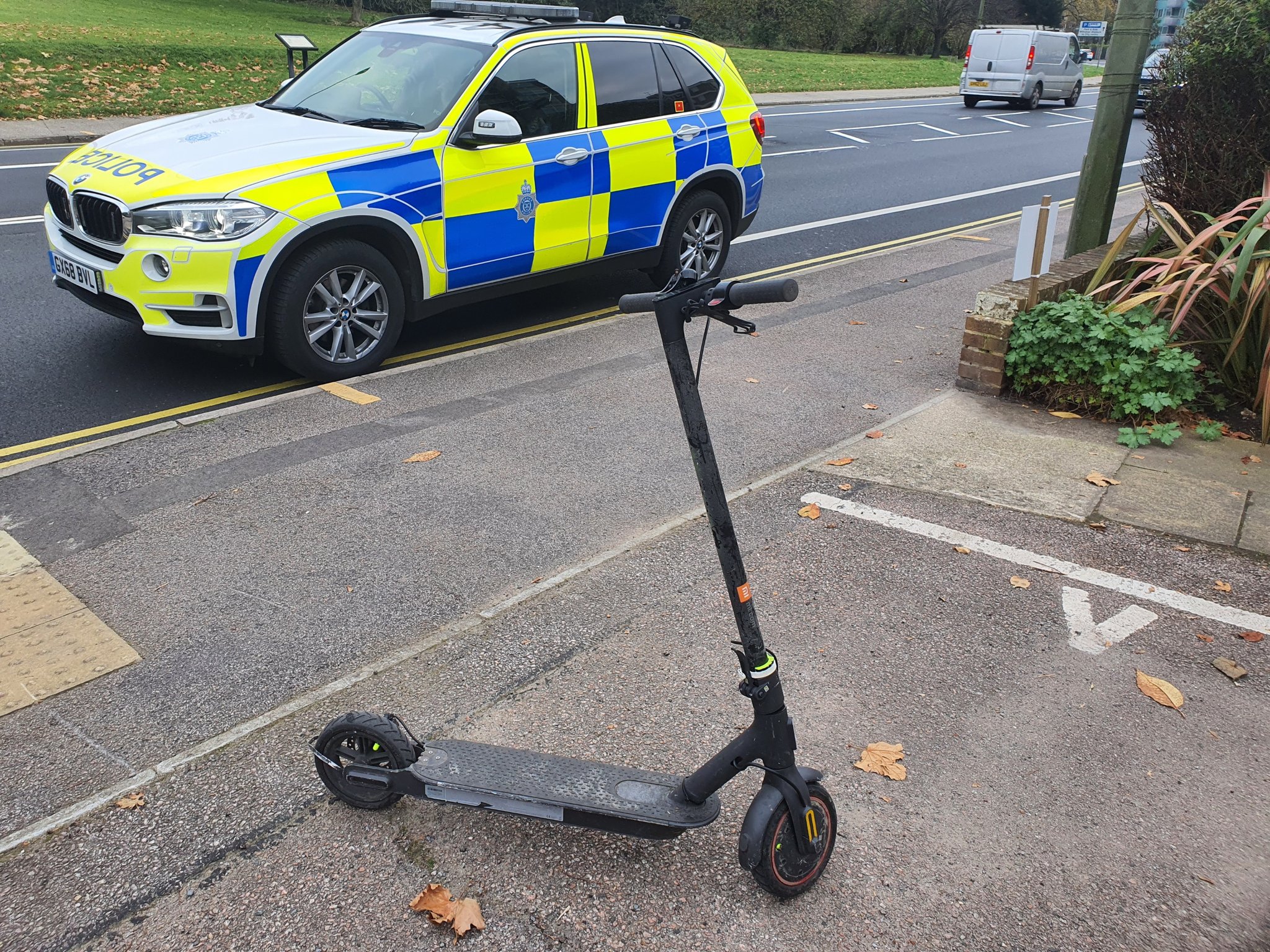
E-scooters will no longer be allowed on trains from Brighton and Hove from next Thursday because of the risk of their batteries catching fire.
Unicycles, skateboards and hoverboards powered with lithium-ion batteries will also be banned from Southern and Thameslink trains from 1 June – but e-bikes and mobility scooters will still be allowed on board.
The decision follows a number of incidents on the UK rail and Tube network where lithium-ion batteries have been associated with severe overheating, causing fires, explosions and toxic gas to be released.
This is because many e-scooters, e-unicycles, e-skateboards and hoverboards are cheaply made and unregulated, posing a higher risk to passengers and staff on trains or stations.
Under advice from rail industry bodies and the London Fire Brigade, Govia Thameslink Railways’s safety team has carried out a review of the risks.
Southeastern and South Western Railway will also be banning e-scooters from the same day.
Jenny Saunders, GTR’s customer services director, said: “In line with most other UK train operating companies and Rail Delivery Group advice, from 1 June we will not allow e-scooters or similar devices on trains or stations.
“Too many e-scooters have poor-quality lithium batteries that do not comply with European standards and make them a serious safety hazard, with the risk of explosion, fire and release of poisonous gas.”
Passengers who arrive at a GTR station with an e-scooter, e-unicycle, e-skateboard or hoverboard will be asked to return without the device and directed to an alternative train. These devices may not be stored at GTR stations and will not be accepted as lost property.
E-bikes and mobility scooters are still allowed on-board GTR’s trains, as they meet a minimum legal standard, but cannot be charged on trains or at stations.
GTR is giving advance notice of its ban through its websites, announcements at stations and on trains, as well as posters at stations. The train company will also email its customers about the ban before it is introduced.








Why has the government dragged it’s heals around legislation of e scooters? This would make it safer for everyone. How can it be possible that it is legal to use a rented scooter and not a private one – it’s totally non sensical.
It does make sense. However, it has a surprisingly long answer to it Nathan. Minimalistically, it is to do with the regulation of the product in question to which a rental organisation follows a prescribed standard. This standard isn’t currently upheld for privately owned e-scooters, therefore it cannot be certain they are of a set quality.
Further reading on the GOV website: https://www.gov.uk/government/publications/e-scooter-trials-guidance-for-local-areas-and-rental-operators/e-scooter-trials-guidance-for-local-areas-and-rental-operators
Recent headline” – People in Paris have voted “overwhelmingly” to ban rental electric scooters from the French capital’s streets in a poll which officials have said they will implement.”
Lets hope that Brighton’s new council will follow suit and ban on all of these dangerous anti-social menaces from our streets as well. In time (hopefully) there will be a national ban…
They should be banned completely everywhere. Today, over in Lewes, I saw some young idiot whizzing along the pavement, narrowly missing pedestrians, before he moved onto a very busy road, in and out of the traffic. It is amazing that there was no serious accident as a result.
Personally, that is more to the discredit of the driver, rather than the vehicle type, to which we can all say in fairness we’ve seen similar standards from cars/motorbikes/cyclists/pedestrians.
It’s a motorised vehicle, you should take a test and have insurance.
They are currently illegal to ride on public land but until the police enforce this it will get worse.
E-scooters are currently classified as Personal Light Electric Vehicles (PLEVs), so they’re treated as motor vehicles and are subject to all the same legal requirements – MOT, tax, licensing and specific construction.